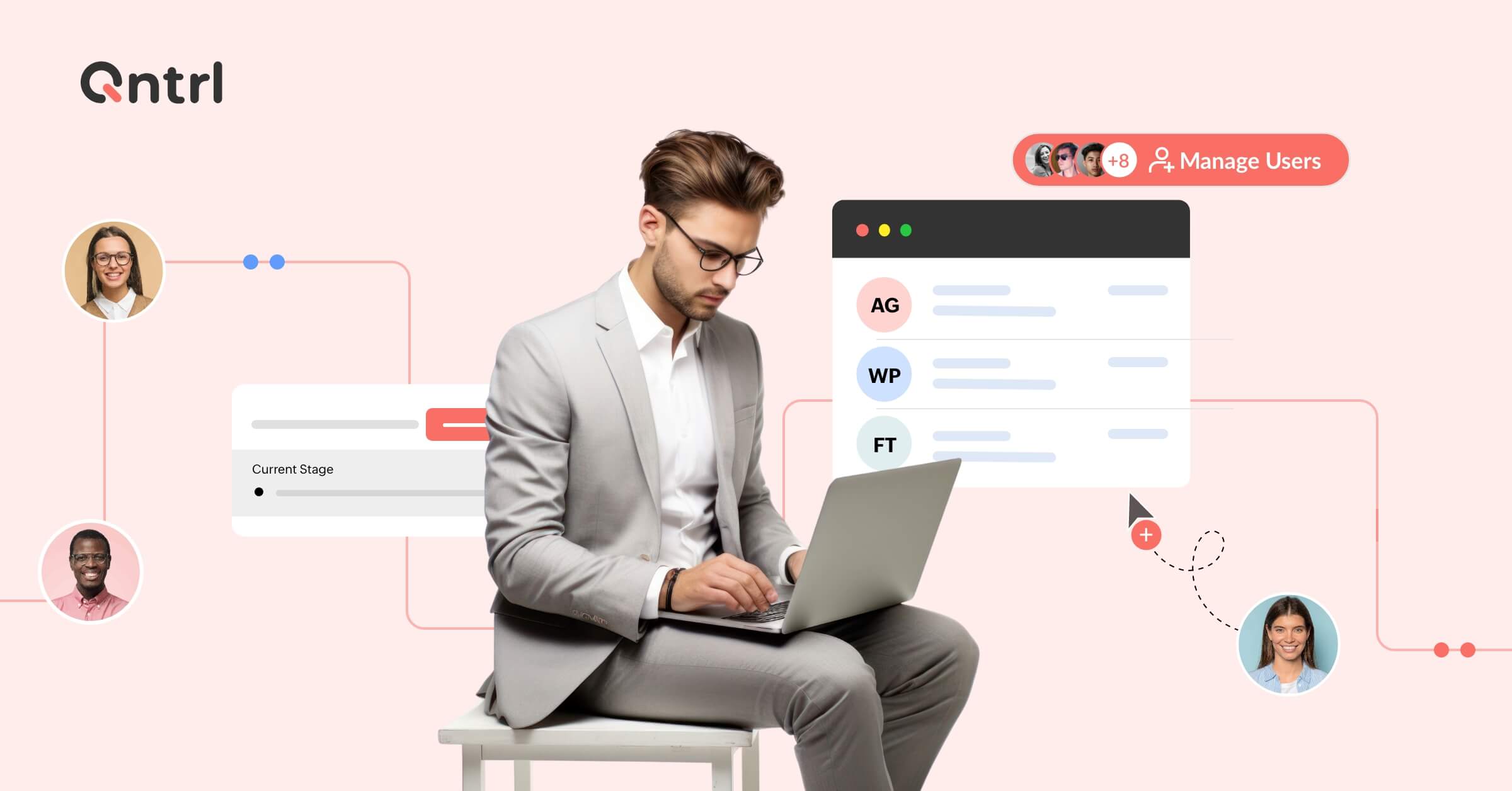Have you ever worked in an organization where the HR department seems constantly swamped with tasks and responsibilities? It's no secret that managing HR workflows can be incredibly complex, with many stakeholders to keep happy, regulations to adhere to, and tasks to complete. So how can we deal with it all?
Fear not, because this guide will delve into HR process management, to help you streamline your processes and achieve maximum efficiency. We'll provide practical tips and tricks to help you optimize your HR workflows, boost productivity, cut costs, and keep your employees happy and satisfied. So buckle up and get ready to dive into HR workflow management!
Understanding HR process management
HR workflow management refers to the processes and tools used to streamline and automate the various tasks involved in HR management. It consists in managing and tracking HR processes, such as recruitment, employee onboarding, performance evaluation, and employee offboarding, from start to finish.
By automating tasks, HR teams can save time and energy that can then be devoted to more critical projects—but the benefits of HR workflow management go beyond just saving time and reducing costs.
These tools also improve accuracy and compliance by standardizing HR processes and reducing the risk of human error. This means that organizations can rest easier, knowing that all HR tasks are handled efficiently and effectively and comply with all relevant regulations.
At its core, HR workflow management is a team effort. HR professionals are the ones who design and implement the workflows, while managers and employees execute the tasks within those workflows.
IT professionals are responsible for maintaining the technology solutions that support these workflows. These stakeholders can create a streamlined HR management system that benefits everyone involved by working together.
Key components of HR workflow management
HR workflow management involves various vital components essential for the efficient and effective management of human resources. These components include:
Recruiting and onboarding: Hiring and bringing new employees on board. Includes job posting, resume screening, interviewing, offer letters, and orientation.
Employee data management: Managing employee records, such as personal information, employment history, and benefits enrollment, as well as storing and maintaining employee records, and ensuring data accuracy and security.
Performance management: Employee performance, including setting performance goals, providing feedback, and conducting performance evaluations. A part of this process is identifying areas for improvement and creating development plans to help employees achieve their goals.
Benefits administration: Employee benefits, such as health insurance, retirement plans, and time-off policies, are considered here. It also includes enrolling employees in benefits programs, communicating benefit changes, and addressing employee inquiries.
Employee relations: Taking care of employee relations and maintaining positive employee morale, handling complaints, conducting investigations, and resolving conflicts fairly and on time.
Compliance: Ensuring HR practices comply with labor laws, regulations, and company policies. Includes monitoring and enforcing compliance with applicable regulations, such as Equal Employment Opportunity (EEO), Occupational Safety and Health Administration (OSHA), and the Fair Labor Standards Act (FLSA).
Organizations can improve efficiency, reduce costs, and enhance the employee experience by effectively managing these critical components of HR workflow management.
Additionally, using technology to automate these processes can help ensure accuracy, consistency, and compliance while freeing HR professionals to focus on more strategic initiatives.
Challenges in HR process management and how to overcome them
Here are four common HR process management challenges and some tips to overcome them:
Challenge #1: Managing a high volume of paperwork
Managing a high volume of paperwork is a common challenge for HR teams. Manually sorting, filing, and storing paper documents is time-consuming and can be prone to errors.
Tip: Consider digitizing your HR workflows using a document management system or HR software that includes document management features. This can help streamline capturing, storing, and retrieving HR-related documents and reduce the burden of managing paper documents.
Challenge #2: Maintaining data accuracy and integrity
Maintaining data accuracy and integrity is critical for HR workflow management. Errors in employee data can lead to payroll errors, benefits administration issues, and compliance violations.
Tip: Implement a data validation process to ensure that employee data is accurate and up to date. Consider using HR software that includes data validation features or assigning a dedicated staff member to manage employee data and ensure its accuracy.
Challenge #3: Ensuring compliance with labor laws and regulations
Compliance with labor laws and regulations is essential for HR workflow management. Failure to comply with applicable laws and regulations can lead to legal and financial consequences.
Tip: Stay up to date with labor law and regulation changes and ensure that your HR workflows comply with them. Consider using compliance management software or consulting with legal experts to ensure compliance with your HR workflows.
Challenge #4: Managing employee communication and engagement
Managing employee communication and engagement is critical for HR workflow management. Disengaged employees can lead to low morale, reduced productivity, and high turnover rates.
Tips:
Foster an open communication and transparency culture to improve employee engagement.
Encourage feedback from employees and be responsive to their needs and concerns.
Consider using HR software that includes employee engagement features, such as pulse surveys or anonymous feedback tools, to gauge employee satisfaction and improve communication.
How to streamline your HR processes
HR workflow management can be a complex and time-consuming process. To streamline and optimize it, here are some tips:
Define transparent processes and procedures
Establishing transparent, standardized processes and procedures for HR workflows can help ensure consistency and efficiency. Good techniques and methods provide a roadmap for HR teams to follow and enable them to complete tasks more quickly and accurately.
Automate repetitive tasks
Automation can help HR teams reduce the time and effort required to complete repetitive tasks. HR teams can focus on more strategic initiatives and improve productivity by automating tasks such as data entry, sending emails, and scheduling appointments.
Utilize business process management software
HR workflow management software like Qntrl can help organizations streamline processes and manage workflows more efficiently. These software solutions offer automated workflows, document management, and reporting features, which can help HR teams improve their efficiency and effectiveness.
Empower employees with self-service tools
Providing employees with self-service tools can help them complete HR tasks more efficiently and effectively. Self-service tools enable employees to access information and complete tasks such as updating their data, requesting time off, and enrolling in benefits, reducing the burden on HR teams.
Conduct regular process reviews and evaluations
Reviewing and evaluating HR processes and workflows helps identify areas for improvement and streamline workflows further. HR teams can make changes to improve their effectiveness and efficiency by identifying bottlenecks or inefficiencies.
By implementing these tips, organizations can optimize their HR workflow management processes and improve their efficiency and effectiveness in managing human resources.
Streamlining HR workflow management is essential for enhancing productivity, reducing costs, and improving employee satisfaction. Organizations can optimize their HR workflows and achieve their business objectives by adopting the tips and best practices outlined in this guide.
Let us help you streamline your HR processes—book a session with us now!








